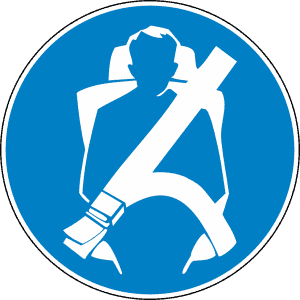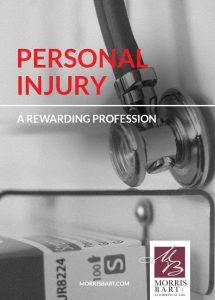
Filing a lawsuit can be a significant step in the personal injury legal process. When a lawsuit is filed, each party collects information and evidence from one other in a procedure known as “discovery.” One part of discovery is the deposition process, where attorneys can ask questions from the people involved in the lawsuit as well as witnesses.
Many personal injury cases never require the victim to sue the at-fault party—instead, they settle outside of court. Even when a lawsuit is necessary, settlements are still common. As such, you may reach an agreement in your case before discovery begins. Still, it is a good idea to know what to expect if you need to give a deposition.
What Is the Purpose of a Deposition?
Depositions are question-and-answer sessions in which a witness provides information about the case, usually under oath. They answer questions asked by the opposing attorney with representation from their own lawyer. It is a crucial part of the discovery process.
Although many people expect a deposition to occur in court, they generally happen outside the courtroom, most commonly in a law office conference room:
Deposition definition: The spoken testimony of a witness taken out of court but with the instruction of the court
There are two main purposes of a deposition:
To Gather Information
Attorneys on both sides want to gather information about the case, and deposing those involved allows them to do so. During this process, you will need to communicate an accurate account of the accident, explaining what happened in detail.
Your attorney will ask many of the same questions to the defendant, as this allows all parties to gain both viewpoints of the incident and cement certain facts that both sides agree on. This approach could limit problems later in the process.
To Preserve the Information for Trial
Attorneys also want to preserve your testimony so it is available later at trial. Doing so can be good or bad depending on your involvement with the case, as a skilled attorney will be able to compare every word a person said in a deposition with their testimony at trial. Therefore, it is essential to tell the truth and refer to notes about the incident when you need to jog your memory.
Attorneys will also use this as a chance to see how each witness will perform in front of a jury during trial.
For a free legal consultation, call 800-537-8185
Are You Required to Give a Deposition?
You are legally obligated to give a deposition in most situations if asked. If you are the plaintiff or defendant, you are required to be deposed if the other side requests it.
Sometimes, witnesses to an incident are subpoenaed to be deposed, even if they are not a party to the litigation. Although you can try to fight the subpoena, you will need to go through the court to explain why you don’t believe you should be deposed. There are a few viable reasons, such as marital privilege.
Do Not Let Your Deposition Intimidate You
Even though it should not feel as stressful and formal as a trial, you will be under oath during your deposition. This means each witness has sworn to tell the truth to the best of their ability. For this reason, your attorney may go over what to expect with you in detail before the day arrives.
Most claimants understand that depositions are critical in their personal injury case, but that does not mean you have to feel intimidated. Knowing what to expect and preparing for the deposition will help you relax, give better answers, and build a stronger case. Your attorney may offer specific advice on how to prepare for your deposition.

Click to contact our personal injury lawyers today
What Will They Ask Me During a Deposition?
When deposing a victim, driver, or witness in a car accident case, attorneys will generally focus on:
- The person’s background
- Details of the accident
- Their injuries
- Their treatment
Remember, it is OK to say you don’t know the answer to a question. In fact, if you are uncertain, you should not guess. Say only as much as necessary to answer each question with certainty. You can also ask for a break if you need one.
The most important thing is to remain calm and listen and speak carefully. Your attorney will take care of objecting to specific questions if they believe a response could hurt your case. If you want, you can print these questions for further practice.
Here are some examples of questions you can expect to hear:
Background Information
- Name, address, and date of birth
- A list of residences over the last ten years
- Familial details:
- Are you married/divorced/separated?
- Do you have any children, and what are their ages?
- Is there any extended family living with you?
- Educational details:
- Where and which high school did you attend?
- Where and which college did you attend, and what did you study?
- Any special vocational or technical education?
- Work details:
- Where was your place of employment at the time of the accident?
- What were your duties?
- What was your income?
- Did your job require any special training?
- Did your job require physical labor?
- Where did you work before your most recent job?
Accident Information
- Time and date of the accident
- Where were you traveling to and from just before the accident?
- Did you have any passengers?
- Location of the accident
- Description of the road or road quality
- Description of any road signage in the area (stop signs, traffic lights, street or highway signs, etc.)
- Describe the environment in the car prior to the accident:
- Describe any pertinent weather affecting the accident
- What were you doing in the vehicle prior to the accident?
- Were you using your phone?
- Had you been drinking?
- Had you used any drugs or taken any medication?
- Were there children in the car?
- Was the radio on?
- Describe the accident itself:
- What did the other vehicle do?
- What did you do?
- Did you see them coming?
- What was the traffic like?
- Could you avoid the accident? If not, why?
- How is the accident the other driver’s fault, or could it be yours?
- Where did the cars collide?
- Where on your car was the point of impact?
- Where did your respective cars end up after impact?
- Describe any police interaction post-accident:
- What information did you give the police?
- Was a police report filed?
- Did you speak to the other driver, and if so, what did you say?
Injury and Treatment Information
- Describe your injuries:
- What were they?
- Had you experienced similar injuries before the accident?
- Describe the treatment you received:
- Where did you go for treatment?
- What kind of treatment did you receive?
- What doctors have you seen since the accident?
- What was the diagnosis?
- Are you still being treated, or have you fully recovered?
- How do your injuries affect your daily life? Are there things you can’t do anymore?
- Describe your work situation post-accident:
- Can you perform the same job as before the accident?
- Can you earn as much money as before the accident?
Reach Out to Morris Bart, LLC About Your Personal Injury Claim
If you were hurt in a personal injury accident, the Morris Bart law firm will evaluate your legal options with you today for free. Our attorneys work with clients on a contingency-fee basis. We gather evidence and document damages, seeking compensation for medical costs, emotional distress, lost wages, and further damages.
Initial consultations are free, and we serve clients throughout Louisiana, Mississippi, Alabama, and Arkansas. Call (800) 537-8185 to connect with our team.
Questions?Call 800-537-8185
to find a Morris Bart office near you.





